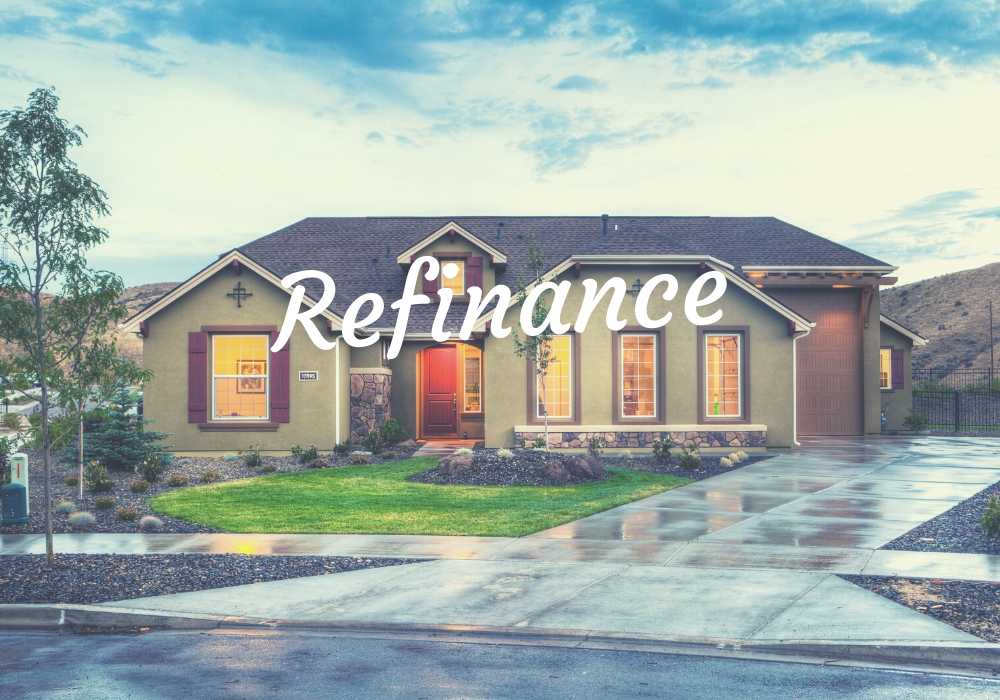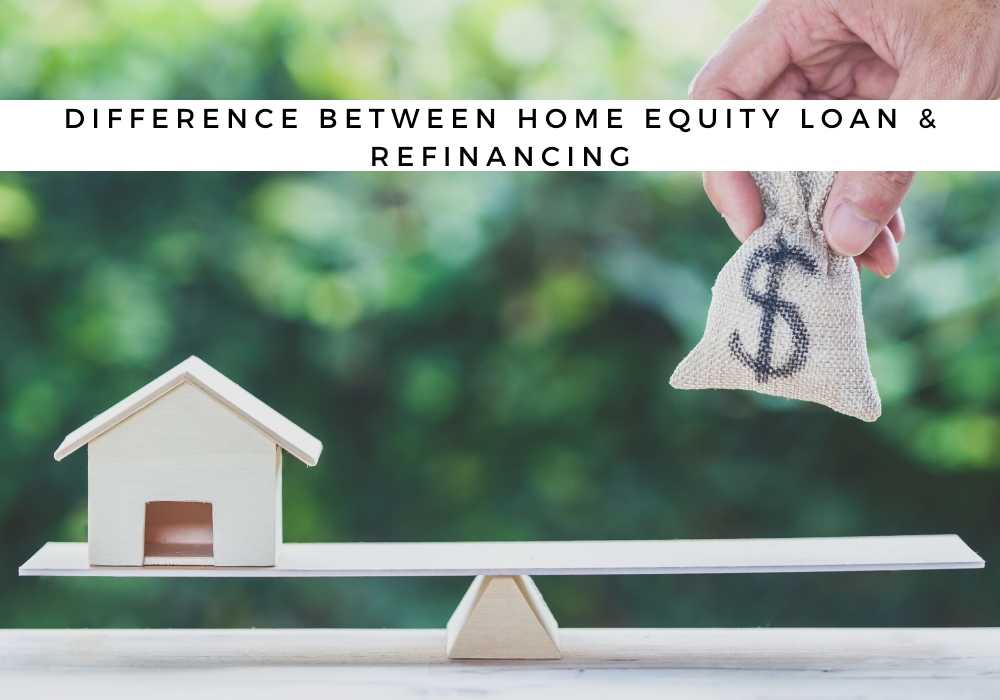The amnesty period for secondary suite application, allowing reduced costs and some relaxation in rules to have existing suites made legal, is scheduled to end June 2020. However City council is due to vote today, April 6, 2020, to extend the deadline 18 Months to end of Dcember 2021. Due to Covid-19 there is a back-log of inspections and applications. Vote is expected to pass.
Adding a Secondary suite
If your thinking about adding a basement suite, or have one and you want to apply to have it made legal.
This link will be very helpful
https://www.calgary.ca/PDA/pd/Pages/Home-building-and-renovations/new-secondary-suite.aspx
In regard to attached or semi-detached dwellings there has been a couple of helpful changes brought forward by the City. Links are here;
https://www.calgary.ca/_layouts/CoCIS/SearchResults.aspx?q=PUD2019-1203&W_srch_res=31
This Bylaw change is #76P2019 regarding attached and semi-detached dwellings link;
https://www.calgary.ca/_layouts/CoCIS/SearchResults.aspx?q=76P2019&W_srch_res=4
RE: Extension to the June 2020 deadline. My contact at P&D City of Calgary tells me No extensions have been made official, Amnesty period for secondary suites deadline remains June 2020. If this changes I'll post it here.
New property listed in Evergreen, Calgary

New property listed in Coach Hill, Calgary

6 Persistent Real Estate Myths You Really Need to Ignore

Whether you're a home-buyer or a seller, it pays to understand the real estate market if you want to get a good deal. Unfortunately, a series of damaging ideas has grown up around real estate which can get in the way of a smooth transaction for both sides.
Here are six of the worst myths you need to ignore.
1) Spring is the Busiest Season.
Traditionally, the best time to list a home was in spring. This was because parents would try to move home over the summer holidays, minimizing the disruption to their children's education. Naturally, spring became the busiest season with the most homes appearing on the market.
However, today's home-buyer profile is a lot more varied than in the past. More than half of buyers are unmarried and have no children, and the school timetable is no longer nearly so relevant.
Instead, as a seller focus on getting your home In the best sale-ready condition you can before listing, rather than rushing to meet an outdated deadline. And as a buyer, start your search whenever you're ready to move, whatever time of year that is.
2) Start With a Low Offer
When you've found a home you want to buy, the traditional advice is to put in a low offer far below what you're really prepared to pay. The idea is to test the water and avoid paying more than you need to.
Today, this is poor advice. Whatever the overall state of the real estate market, desirable properties can sell extremely quickly. If you put in too low an offer, you run the risk of being outbid by another buyer leaving you no time to react.
What's more, most asking prices today are set according to well-established guidelines, and the vast majority of homes are priced more or less correctly. As a buyer, offering an insultingly low figure makes you seem like a time-waster, alienating the seller and souring negotiations from the start.
As a seller, if you receive an offer far below what you're asking for, you shouldn't hesitate to reject it out of hand rather than using it as a starting point for negotiation.
3) Cash is King
It's often thought that a cash payment is the most attractive option for a seller, and therefore the best choice for a hopeful buyer. This idea is completely without foundation.
The vast majority of homes are bought using a mortgage, and it's the expected mode of payment. If anything, an unusual cash buyer might raise the suspicions of a careful seller, who may choose to opt for a well-documented, traceable, bank-financed buyer instead.
4) Making Improvements Boosts the Value
While it's important to make your home look presentable if you want to sell it quickly, it's a mistake to think investing in home improvements will boost its value by much. Most improvements won't raise the value by enough to pay for themselves, with the possible exception of major structural work such as an extension or basement conversion.
For sellers, it's usually much more cost-effective to concentrate on fixing problems and improving appearances rather than spending a fortune on upgrades and remodels.
For buyers, don't let home improvements you don't need lure you into paying a premium.
5) You Can't Trust Real Estate Agents
There's a common idea that real estate agents should be treated warily, and any advice they give taken with a pinch of salt. It's not clear why this myth has developed.
Most agents earn their living from commission on successful sales, where both the buyer and seller need to be happy for the sale to close. It's in the interests of a real estate agent to help strike a fair deal, not to propose unrealistic prices in either direction.
6) Buyers Can Leave Finance Until Later
Arranging a mortgage isn't as exciting as exploring listings to find your dream home, but it's not something to put off. If you don't get a pre-approval right at the start of the house-hunting journey, you can risk several major problems later on.
You could fall in love with a home that's out of your financial reach in reality. And even if you can afford the asking price, starting a mortgage application from fresh can introduce a deadly delay, opening the door for competing buyers.
And lastly, seeking a pre-approval will highlight any problems with your credit file, giving you a chance to fix them before getting too deep into the buying process.
Buying or selling a home is complicated enough, with plenty of pitfalls along the way. Don't make it even harder by accepting these all-too-common myths that serve no purpose in the modern market.
Should You Pay Off Your Mortgage Early?

It's a dream to be able to pay off your mortgage early, but is there a downside? While it sounds like a great idea, there are some factors to consider before doing so. This article will explore some of the reasons you may want to hold off on that final payoff amount.
Other Debts
If you have various other debts (credit cards, auto loans, etc.) it's a good idea to pay those off before the mortgage. Why? Well, credit cards usually have astronomical interest rates so that outstanding balance will only grow if you choose to put all your money towards your mortgage.
That extra interest on your credit card or auto loan isn't tax deductible, which leads to the next point.
Check for Penalties
Some mortgages come with a prepayment penalty. If you're thinking about paying yours off early, then check the fine print to see if it applies, and also run the numbers to see if early payoff makes sense.
Fund Your Retirement Plan
Before you go paying the mortgage off, consider funding your retirement plan. If you don't have one already, it may be a good idea to set one up as they are tax advantageous.
Once you get a good handle on your retirement plan, paying off the mortgage might be next on your list. A good-sized nest egg and a home that's mortgage-free sounds like a great way to start off retirement.
Consider the Side Effects
When deciding to pay off the mortgage, there seems like no downside but there are various things to consider. Will making additional payments put a strain on your savings? How about your emergency fund?
It's essential to consider your overall financial health when making such a big decision. Although being mortgage-free would be a fabulous feeling, you don't want to do it at the detriment of your cash flow.
Pull the Trigger
After reviewing all your financial information and deciding what's best for your situation, be confident in your decision and follow through. It's a great feeling to be mortgage-free or on your way there. The bottom line is that you need to do what makes you comfortable for your family.
Real Estate 101: Essential Tips for First-Time Home Buyers

Buying a home is always a big decision, but when you're a first-time buyer it's even more important to get it right.
Without home-buying experience to draw on, it's easy to make mistakes you could regret for years to come. Here's what to avoid
1) Don't Rush the Mortgage
In the excitement of buying your first home, it can be tempting to sign up for the first mortgage offer you're approved for. Being too hasty is a serious mistake which can cause difficulties for a long time to come.
It's a good idea to speak to an impartial mortgage adviser before committing yourself to any deal, but in any case, always bear some simple points in mind.
- Be very cautious about how much you try to borrow, making sure you leave plenty of headroom in your budget. Owning your own home has many extra costs compared to renting, and you need to leave yourself some breathing space to handle them.
- Explore your down payment options. The larger the down payment you can afford, the lower your monthly payments will be. Could it be worth waiting a couple of years to save up a bigger deposit? However, don't break the bank to increase your down payment, as you'll need to keep some cash in reserve as an emergency fund.
2) Get a Pre-Approval
But whichever mortgage you wind up getting, set the process in motion with a pre-approval before actually searching for a home. Doing this has several advantages,
- It lets you know exactly which price range you can search in, so you don't waste time viewing homes which are over your budget.
- It puts you in a stronger position to drive a bargain, as the buyer knows you can access the funds to complete the purchase.
- Seeking a pre-approval will give you an early warning about any credit rating problems or other delays which could slow things down. You don't want to see your dream home slip through your grasp because of unnecessary delays.
3) Hire a Buyer's Agent
Most sellers will have a real estate agent to handle their side of the transaction, but it's less common for a buyer to hire their own agent. However, there are several good reasons why you should consider doing so.
- Having an expert fighting in your corner means you're much more likely to pay a realistic price.
- You'll have a better chance of spotting problems with a home before you're committed to a purchase.
- A buyer's agent also speeds up the purchase by smoothing out glitches and making sure you're fully prepared at every stage.
- A good agent's experience and contact list mean you can find the right property more quickly.
4) Arrange a Full Home Inspection
Before proceeding with a purchase, hire the services of a reputable home inspector. A good inspector will make sure no nasty surprises are waiting for you with the property's heating system, plumbing, roof, or general structure.
5) Be Careful During Closing
Lastly, once the buying process is underway, avoid making any changes to your financial situation. Don't switch jobs, take out new credit, or spend large amounts of money.
Anything which changes your credit status, even just by a small amount, could introduce delays or even kill off the sale altogether. Be patient until you finally have the keys to your new home in your hand.
There are plenty of pitfalls lying in wait for the first time buyer. However, if you take your time and learn from others' mistakes, you'll soon be happily moving into your new home.
Should You Refinance Your Mortgage?

There are a multitude of reasons why a homeowner may be considering refinancing their mortgage. However, before any final decisions are made it is always a good idea to consider carefully whether refinancing is a good idea for you.
What is refinancing?
To refinance means to apply for a new loan on your current mortgage. Due to the fact that you are applying for a new loan, you will need to supply your lender with all of the details necessary for refinancing - this will include credit history, income history, your assets and the appraisal of your home to name just a few.
Reasons why most people refinance
The vast majority of mortgage refinances are completed in order to obtain a lower interest rate on a mortgage. After all, a lower interest rate can potentially save you thousands of dollars over the life of the loan.
Some other reasons to refinance a mortgage would include:
1.Stabilizing a monthly payment: Some homeowners opt to refinance their mortgages to switch from an adjustable-rate mortgage to a fixed-rate mortgage. When you have a fixed interest rate on your mortgage it is much easier to complete your monthly budget since the payment amount will not change.
2.Combining two mortgages: Though it is uncommon, some homeowners choose to refinance mortgages so that they can combine the two payments into one. For some, this is just to make things more convenient, while for others it may hold some financial benefits.
Though refinancing may seem like a good fit for you at this point, there are still a few questions that you need to ask yourself before moving forward. These questions are:
1.Is there any prepayment penalty on your current mortgage? If so, you will need to figure the penalty into deciding whether the refinance math works in your favor.
2.What are the upfront costs for the new mortgage? Refinances often come with closing costs so these will need to be accounted for.
3.How will the refinance impact your tax situation? You may want to speak with an accountant to see if refinancing will change your taxes at the end of the year.
4.How much money will you save by refinancing? This is the most important question of all. If the refinance isn't going to save you any money there's a good chance it may not be worth completing it.
Ultimately, your decision on whether to move forward with any refinance deal will depend entirely on your own personal situation. However, don't be afraid to shop around for the best rates and you may soon find a refinance deal that works well for you.
4 Reasons to Hire a Real Estate Agent When Selling Your Home

Selling your home is a big decision, and it's often a long and complex undertaking. Hiring a real estate agent can make every step of the home-selling process easier, from setting an asking price to closing the sale. Here are four benefits of hiring a real estate agent to sell your home.
Pricing Expertise
Many homeowners have an idea of what their houses are worth, but their ideas are often not realistic. Their perspective may be based on emotion and sentimental value, rather than what the housing market will bear. Conversely, some homeowners undervalue their homes and ask for much less than the home is really worth.
An experienced real estate agent is an expert on the home prices in your local market. An agent will suggest an asking price based on a Comparative Market Analysis. A market analysis examines supply and demand in the area, along with the price and condition of similar properties. A market analysis ensures your home will be priced in order to sell as quickly as possible for the highest amount of money. By working with an agent, you'll arrive at an unbiased and accurate sale price for your home.
Access to Multiple Listing Service
Real estate agents are able to list your home on the Multiple Listing Service (MLS), greatly increasing its exposure. When your home is listed on the MLS, it will be seen by potential buyers and by buyers' agents. You have a good chance of finding a buyer quickly. Access to the MLS is one of the best benefits of hiring a real estate agent to sell your home.
Negotiation
The best real estate agents are skilled negotiators. Selling a home has several potential pitfalls, including repairs, inspections, and financing. If any questions arise, your agent will negotiate on your behalf to resolve the issues. If you receive multiple offers for your home, your agent will help you weigh the pros and cons of each one, ensuring you make the best decision.
Paperwork
Selling a home comes with a great deal of paperwork. Purchase agreements alone can be ten pages or longer.* Your real estate agent will read all of the fine print and will handle the necessary paperwork for you. He or she will draft your sales agreement, prepare the closing documents, and ensure you comply with all legal requirements.
The help a real estate agent provides during the selling process can be invaluable. The right agent will ensure you get a fair price and will make selling your home as easy as possible.
Easy Ways to Repay Your Home Loan Early and Free Up Cash for Family Adventures

Most home buyers take out a mortgage to help finance buying a home. As a result, many homeowners are faced with a monthly mortgage payment during the time they are raising their children or sending them off to college. What if a way existed to pay off your home loan early in order to free up the money for the kind of adventures every family longs to have? Fortunately, a few strategies do exist that can help you to shave years off your mortgage term. All you need to do is incorporate as many of them as you can into your life to create the kind of impact you are looking to achieve. Here's a look at several easy ways to pay your mortgage off early.
Round Up Your Monthly Payment
Instead of paying the exact amount of your monthly payment, you can round up to the next even number. For example, if your monthly mortgage payment is supposed to be $1425, you can pay $1500. While this additional $75 may not seem like it is going to make a difference, it does. Plus, you probably won't even miss this small sum of money from your take-home pay
Put Your Bank Account Interest Toward Your Mortgage
If you have savings accounts at a local bank or credit union, you may want to consider putting the interest that you've earned toward your home loan. You have the option to do this at your discretion. However, if your money is tied into CDs, then you'll have to wait until the CD comes due. You won't miss this money because it isn't included in your take-home pay. Plus, it can help to whittle down the balance on your mortgage, especially when you combine it with other strategies.
Take Unexpected Financial Bonuses and Put Them Toward Your Mortgage
One way to pay down your mortgage debt is to take any unexpected monetary bonuses and put them toward the balance of your home loan. You can use lottery winnings, holiday bonuses, gifts of cash, inheritances, and tax refunds to decrease the amount of money you still owe on your mortgage.
Refinance Your Home Loan
Not everyone can save money by refinancing a mortgage. Evaluate the cost to do so and weigh it against potential savings on the debt. If you can save more money than you spend, refinancing provides an excellent option when you are looking to save money on your mortgage. Ideally, you can select a shorter term that allows you to shave years off your home loan. Alternatively, your monthly payments decrease, allowing you to put more money toward the balance of your loan
Paying off your mortgage early can save you thousands of dollars in interest fees. Not only does this strategy help free up cash for family vacations, college, and special events, but it also helps you to avoid paying a lot more for your home than it is worth. Before you begin, you should talk to your lender and find out whether or not any penalties exist for early loan repayment.
If no penalties exist, you can move forward with your plan to pay off your mortgage early. Simply take the time to figure out which strategies are going to be the easiest to incorporate into your life and start paying down your mortgage now. Not only do you lower the balance on the payoff number, but you also lower the total amount of interest paid on your home loan.
What is the Difference Between a Home Equity Loan and Refinancing?

Though most people believe that their home is a great place to live, others see the value in owning a home. It can be a great investment. However, if you are strapped for cash, it can be a source of ready cash.
You may decide to look into a loan so you can get some cash easily, with a home equity loan or a cash-out refinance loan, though you may just want to refinance your home (to make your payments more bearable.) You need to do your research before you decide how you want to proceed.
What is a Home Equity Loan?
A home equity loan should be looked at as a second mortgage. If you need to borrow money to update your house or do some renovations, you may want to look into a home equity loan. You may also find it helpful if you want to pay off some of your debt (credit cards, car loan, etc.)
To see if you are eligible for a home equity loan, you need to see if you owe less on the home than it is worth. Even if it isn't close to being paid off, you may have a few thousand dollars of home equity.
So, Why Would You Want a Home Equity Loan?
Most people choose home equity loans because you can often get a very low-interest rate on them. It might be cheaper to get a home equity loan for your next car than going through the dealership. If you are paying off high-interest credit cards, three or four percent interest is a lot better. You may actually be able to pay it off sooner than you thought.
What Does It Mean to Refinance Your Home?
When you go to refinance your home, you are just going to pay off one loan with another. You are taking out a new mortgage loan, to cover your old one.
So, Why Would You Refinance Your Home?
There are several reasons why someone would want to refinance their home.
• To make the payments easier. If you are able to get a better interest rate, you could really drop your monthly payments.
• To change the terms of the loan. Other people decide that, instead of a thirty-year loan, they want to pay it off sooner. You can refinance your home into a new fifteen-year loan. Your monthly payments should be similar, though you will be able to pay your home off sooner, saving you some interest.
What is a Cash-Out Refinance?
For those people who want to refinance their home, but they also need cash, many lenders also offer a cash-out refinance loan. This allows you to refinance your mortgage and get some cash for different reasons. Your cash-out refinance loan will be more than your current mortgage, so that you can have some money to take care of different things.
So, Why Would You Do a Cash-Out Refinance Loan?
There are a few reasons why you might want to get one of these loans.
• You can pay off your current mortgage (though you will have a new one)
• You might be able to pay your home off quicker (or decrease your monthly payments)
• You have some extra cash to help you pay off debts, do some house renovations, or even buy a large item (such as a car).
• You only have one payment every month, instead of a mortgage, second mortgage, loans, and credit card bills.
How Should You Choose?
The best way to decide which is best for you is to speak to a professional. He or she can talk to you about your options and what your payments are going to look like so that you can make an informed decision that is going to work best for you.
How Many Homes Should You Tour Before Buying?

If you are beginning the home-buying process, you may begin to wonder how long it will take until you find the perfect home for you and your family. The answer to that varies due to different factors. Check out these three factors on how many homes you will tour before buying:
The State of the Market
A buyer's market is when there are few houses for sale and the ones that are available, sell quickly. This creates a higher demand for houses as people scramble to buy what they can. If the location you are considering seems to be a buyer's market, you may be competing with multiple buyers for the same house. If you are hesitant with a house because you think a better one is out there, someone else may swoop in and sign a contract. This leaves you with fewer options and a long time trying to find a house. If you find yourself in this situation, you will probably need to move as quickly as possible if you want to secure a home.
Knowing What You Want
If you are specific about the type of house you would like, then it is usually much easier for a real estate agent to suggest properties to tour. For example, if you insist on living in a house with a backyard, they will refrain from suggesting a high-rise condo. If you are more open to various options, you have a bigger playing field, and it may take some time to sort through the selection. Before you begin your search, take some time to really consider what you are looking for.
Your Willingness to Compromise
Home buyers usually have a list of things they absolutely need to have in their potential home. However, all of the amenities you are looking for might not be in the right location or fit within your budget. For example, a three-bedroom house a short drive from downtown may cost thousands more than that same type of house further away. If you are willing to compromise on what you want, you can find a home much quicker.
Finding the perfect house for you can take weeks, months, or even longer. To shorten this length of time, know what you want, and be willing to compromise. Soon, you will be able to find the home you have been dreaming of and begin life as a homeowner.

